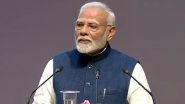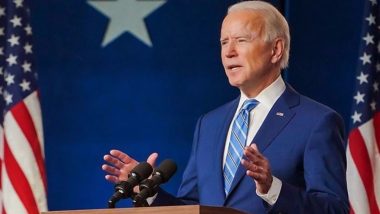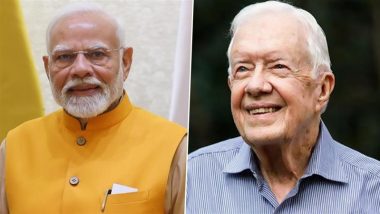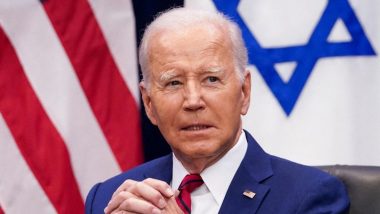President Joe Biden has inherited a minefield of issues that each deserve his undivided attention. Given events of the last year, Covid-19, the BLM movement and the state of the economy will of course be at the top of his agenda however, the issues of national security and foreign policy will always demand attention.
Middle Eastern foreign policy will always dominate American politics. Other than Iraq and Afghanistan, Libya is the most contentious of the US’s recent interventions. Libya’s geostrategic significance, nestled between the Middle East and Europe has both been a cause for its trade power, given its rich energy resources, as well as its history of troubles and unrest as different actors try to gain control.
In 2011, the oil rich country was plunged into civil war following the NATO backed uprising which led to the fall of Col. Gaddafi’s rule. Catastrophic disasters in Benghazi and Tripoli led to fierce criticism of then Secretary of State Clinton and President Obama’s failure to manage the fallout.
Now that President Biden has moved into the Oval Office, all eyes will be on what he does next, will we see a continuation of the Trump administration’s disengagement policy or will it be a return to the traditional model of American interventionism seen so many times in the past.
Speaking to the Associated Press ahead of the inauguration, Fathi Bashagha, the Minister of Interior for the Government of National Accord (GNA) said Libyan hopes were greatly lifted by his victory.
Bashagha was one of the first Libyan officials to speak out on Biden’s election win. He is pipped to become interim Prime Minister within a matter of days, in a soon-to-be-formed unity government following the ongoing peace negotiations between the country’s warring factions.
Despite him being in touching distance of high office, Bashagha himself did not seek out a career in politics. After 10 years serving as a fighter jet instructor, he left the Air Force in 1993 and opened a business importing and exporting auto parts.
Having long left his military career behind him, Bashagha, along with all other serving and retired military officers, was summoned to join the judicial committee, known as the Military Council of Misrata after the fall of the Gaddafi regime in 2011.
Initially, he served as Head of the Information and Co-ordinates Department, before becoming spokesman for the Council. He then joined the advisory committee at the National Reconciliation Commission, before being elected to the House of Representatives for Misrata in 2014, an institution he continues to boycott.
During this time, he began to emerge as the man most likely willing and able to effectively overhaul the country’s security issues. Things changed following his involvement in the Parliament’s Political Dialogue Commission, sponsored by the UN. Bashagha emerged as the stand-out candidate who proved to be best placed to bring together the bitterly opposed sides ahead of the 2015 Skhirat peace agreement.
Once he took office in 2018, he threw out the rule book and started from scratch, implementing new policies and turning the old hierarchy on its head, working from the top down. From establishing a professional police force, to launching an app that allows people to report crimes directly, the efforts proved highly successful at reducing crime rates. More importantly, they greatly restricted and minimised the influence of the armed militias that had historically dominated the establishment.
As is common in politics, one does not rise from out of nowhere without having the necessary support behind them. For Bashagha, this has previously raised eyebrows given his close ties with Turkey and the Muslim Brotherhood. Today, Turkey continues to be a supporter of the GNA but is said to be growing frustrated with moves it considers to be outside their influence.
In this case, it seems Bashagha has worked hard to prove his reliability and resolve to address the biggest issues plaguing Libya; terrorism and corruption. He established the Financial Crimes Unit, the first of its kind in Libya, to develop and implement anti-money laundering regulations and anti-terror financing, saving half a billion dollars that was on its way to terror groups and human traffickers.
He is the first Libyan government official to openly fight institutional corruption, working with the Attorney General to remove corrupt official from their posts and bring them to justice.
In recent years, Bashagha has prioritised the implementation of counter-terrorism campaigns, and has personally worked closely with foreign counterparts to assist in the capture of known terrorists. He played an instrumental role in the capture and extradition of Hashem Al-Obaidi, brother of the Manchester Arena bomber as well as helping to bring wanted human rights trafficker Abdul Rahman Milad into custody.
He took a lead in Libya’s fight against ISIS, co-ordinating air and ground military operations between the Al-Bunyan Al-Marsous forces, AFRICOM forces and the International Counter-Terrorism Coalition in 2014 and has previously applauded US efforts to defeat ISIS militants in Sirte back in 2016. He has openly referenced ongoing co-operation between the two countries and said he hopes the new administration will help the coalition to finally bring an end to the terrorist elements that plague Libya.
In the past few months, Bashagha has held meetings with several western counterparts, including the Deputy US Ambassador to Libya. These meetings are not only designed to seek support for his coalition ahead of the December elections, but mostly for guidance and advice. If there’s one thing his decade long stint at the heart of Libyan politics has taught him, it’s that the country does not have the capacity nor the skill to implement these ambitious reforms without external backing.
The appointment of a new Ambassador whenever there is a change of administration always brings renewed hope for improved relations, and Bashagha is among those eagerly awaiting to see what direction the Biden administration chooses to follow.













 Quickly
Quickly




















